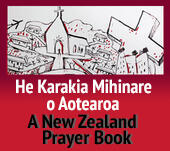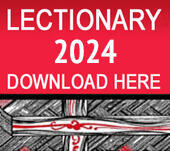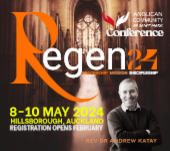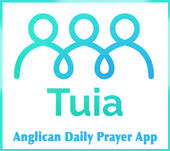Tribal Church – Ministering to the Missing Generation by Carol Howard Merritt (Herndon, Va.: Alban Institute, 2007. xiii, 164 pp.
Tribal Church is written by a 34-year-old Presbyterian minister in the US, and promises to address the issues facing churches as they seek to attract and minister to adults under the age of 40.
Howard Merritt’s personal experience is not dissimilar to my own and no doubt many others. Coming to faith as a teenager within an evangelical Anglican church, one became the focus of a vast machinery of resources, energy, marketing, and expertise. But on passing beyond that mysterious age when I was no longer a youth (or even a youth leader), I found myself invisible in the church.
There are very few people in their 20s and 30s in our churches, and this is the problem Howard Merritt addresses. The assumption that he identifies as no longer true in American culture – that people grow up in the church, leave in their late teens, rush out into the world for 15 or 20 years, and then return safely to the fold when they marry and have children – is even less true here in New Zealand.
If a 20 or 30-something person ventures into your church on a Sunday morning with a longing to find some spiritual connection, chances are they will have never been to Sunday school, they will have read little of the Bible, they will not know what a vestry or a vicar or liturgy is, and both Hillsongs and Hymns Ancient and Modern will be equally foreign for them.
Howard Merritt is undaunted by this cultural gulf and uses the metaphor of the tribe to open up ways forward. She argues that a tribal way of being church involves gathering around a common belief, tending to the needs of one another, celebrating and remembering traditions and building a relational, intergenerational community.
Her contention is that many under-40s are disillusioned by megachurches and praise worship, and are instead being attracted to small, ‘real’ congregations that take ancient traditions of worship and spirituality seriously.
She identifies pitfalls that such congregations must address if young adults are to find a home in their midst,
including understanding the financial pressures faced by young adults and not judging them, recognizing their desire for inclusive communities, and being willing to encourage their leadership and share power. Though it is not the focus of the book, she also offers reflections on the issues faced by young clergy.
Tribal Church, though written for a different culture and denomination, highlights a significant problem for our church and demands that we address it.
I would have preferred to hear more about the “years of intentional development” of Howard Merritt’s own congregation (where 45% of the adult congregation is under 45), mentioned tantalizingly in the introduction, and fewer statistics and stories on young adults in the wider church. At times she also shifts into lyrical descriptions of what a tribal church will do, without offering any practical grounding – such passages left me penciling ‘YBH’ in the margins (for ‘yes, but how?’).
Nevertheless, while it might not quite live up to its promises (and I wonder what book could!), Tribal Church could be a rich conversation starter for us in New Zealand, and is worth reading. It would be an accessible text for a vestry discussion series or an adult education course, and is certainly a worthwhile contribution to an under-resourced area of ministry.
Clare Barrie is Priest Assistant at St Andrew’s Epsom in the Diocese of Auckland and is completing an Honours degree in theology through Auckland University. clare.barrie@xtra.co.nz]

















Comments
Log in or create a user account to comment.